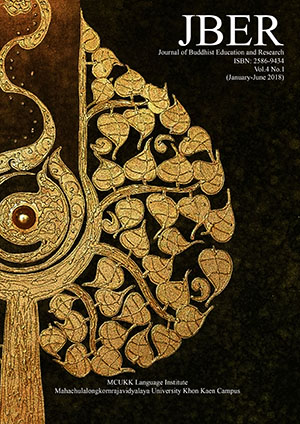Study of developing the society through meditation
Keywords:
Meditation, Social Development, Buddhist PhilosophyAbstract
Current world is suffering in many type of issues in different extends. But there is one common reason for all issues, which s lack of spiritual development of the society. Therefore people don’t satisfied with their needs and always follow the desires and making their decisions in unconscious way. This study is about utilization of meditation as a tool for the world without concerning any other religious aspects. Buddhist meditation is the best approach for that and here we have to understand studying and practicing Buddhist philosophy is more important because it reality and the way of understanding the truth of the nature through meditation than concerning as a religion. Nowadays many Christians, Muslims also bend to practice meditation and many celebrities and personalities as well as international world class organization practice mindfulness meditation for their wellbeing. Therefore this study talks about how we can utilize meditation as a tool for minimizing the social issues.
References
Transcendental meditation, mindfulness, and longevity: An
experimental study with the elderly. J Personality and Soc Psychol
1989; 57(6):950-964.
Carrington P, Collings GH, Benson H et al. (1980). The Use of Meditation
Relaxation techniques for the Management of Stress in a Working
Population. J Occupational Med 1980; 22(4):221-231.
Castillo-Richmond A, Schneider R, (2003). Alexander C et al. Effects of
Stress Reduction on Carotid Atherosclerosis in Hypertensive African
Americans. Stroke [serial online] 2000 [cited 2003 July 31];
31(3):568-573. Available from: Lippincott Williams and
Wilkins/Ovid.
Fee RA, Girdano DA. (1978). The Relative Effectiveness of Three Techniques
to Induce the Trophotropic Response. Biofeedback and Selfregulation 1978; 3(2):145- 157.
Fling S, Thomas A, Gallaher M. (1981). Participant characteristics and the
effects of two types of meditation vs quiet sitting. J Clin Psychol
1981; 37(4):784-790.
Gonzales R. (2001). ABC Relaxation Training As a Treatment for Depression
for Puerto Rican Elderly. In: Johnathon Smith, editors. Advances in
ABC Relaxation: Applications and Inventories. New York: Springer
Publishing Company; 2001. 209-211
Harinath K, Malhotra AS, Pal K et al . (2004). Effects of Hatha Yoga and
Omkar Meditation on Cardiorespiratory Performance, Psychologic
Profile and Melatonin Secretion. J Alt Compl Med 2004; 10(2):261-
268.
Seer P, Raeburn JM. (1980). Meditation Training and Essential Hypertension:
A Methodological Study. J Behav Med 1980; 3(1):59-71.
Shannahoff-Khalsa DS, Ray LE, Levine S, Gallen CC, Schwartz BJ,
Sidorowich JJ.(1999). Randomized Controlled Trial of Yogic
Meditation Techniques for Patients With Obsessive Compulsive
Disorder. CNS Spectrums 1999; 4(12):34-47.
Targ EF, Levine EG. (2002). The efficacy of a mind-body-spirit group for
women with breast cancer: a randomized controlled trial. Gen Hosp
Psych 2002; 24:238-248.
Vedanthan PK, Kesavalu LN, Murthy KC et al. (1998). Clinical Stduy of
Yoga Techniques in University Students with Asthma: A Controlled
Study. Allergy and Asthma Proc 1998; 19:3-9.
Wenneberg SR, Schneider RH, Walton KG et al. (1997). A controlled study of
the effects of the transcendental Meditation program on
cardiovascular reactivity and ambulatory blood pressure. Intern J
Neuroscience 1997;88:15-28.
Wood CJ. (1986). Evaluation of Meditation and relaxation on physiological
response during the performance of fine motor and gross motor
skills. Perceptual and Motor Skills 1986; 62:91-98.
Woolfolk R, Carr-Kaffashan L, McNulty TF. (1976). Meditation training as a
Treatment for Insomnia. Behav Ther 1976; 7:359-365.
Woolfolk RL, Lehrer PM, McCann BS, Rooney AJ. (1982). Effects of
progressive relaxation and Meditation on cognitive and somatic
manifestations of daily stress. Behav Res Ther 1982; 20:461-467.
Zuroff DC, Schwartz JC. (1978). Effects of Transcendental Meditation and
Muscle Relaxation on Trait Anxiety, Maladjustment, Locus of
Control and Drug Use. J Consulting Clin Psychol 1978; 46(2):264-
271.





